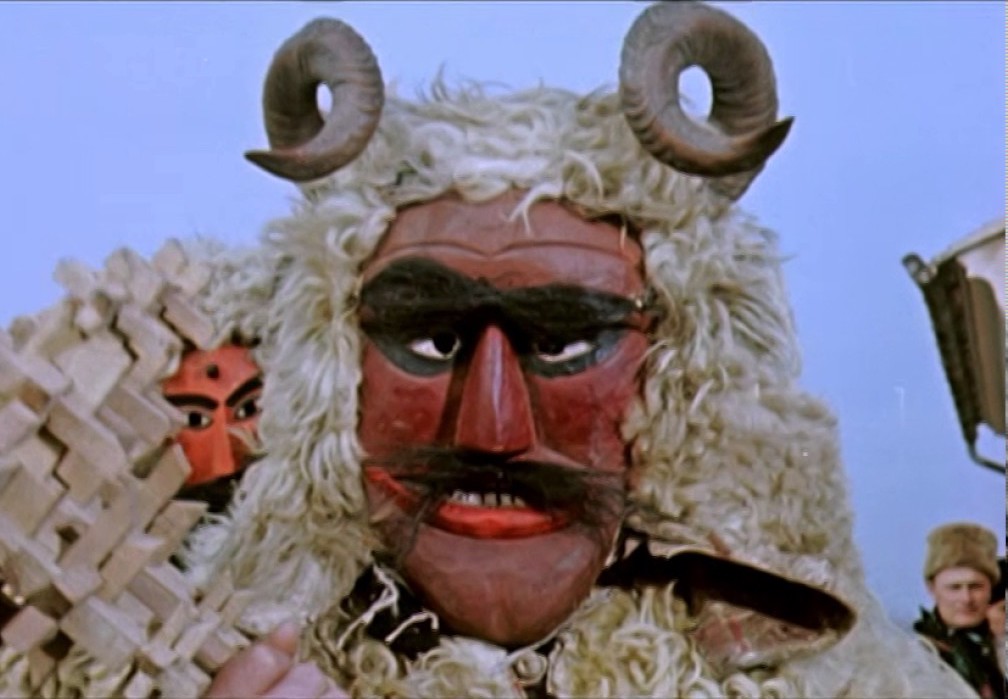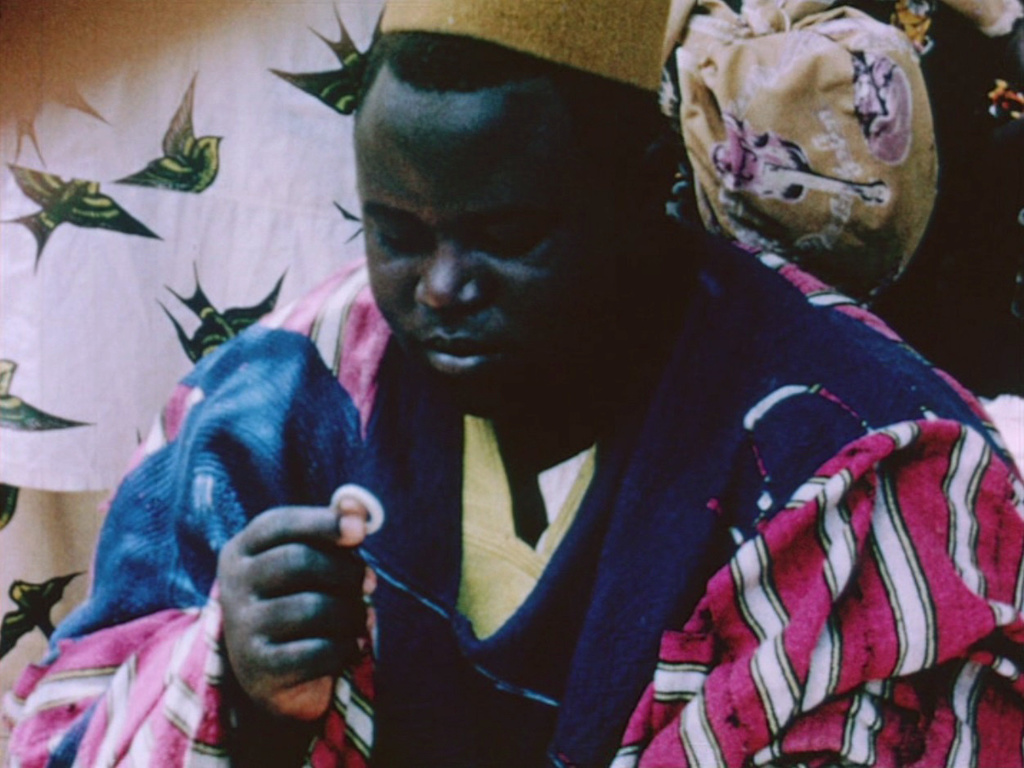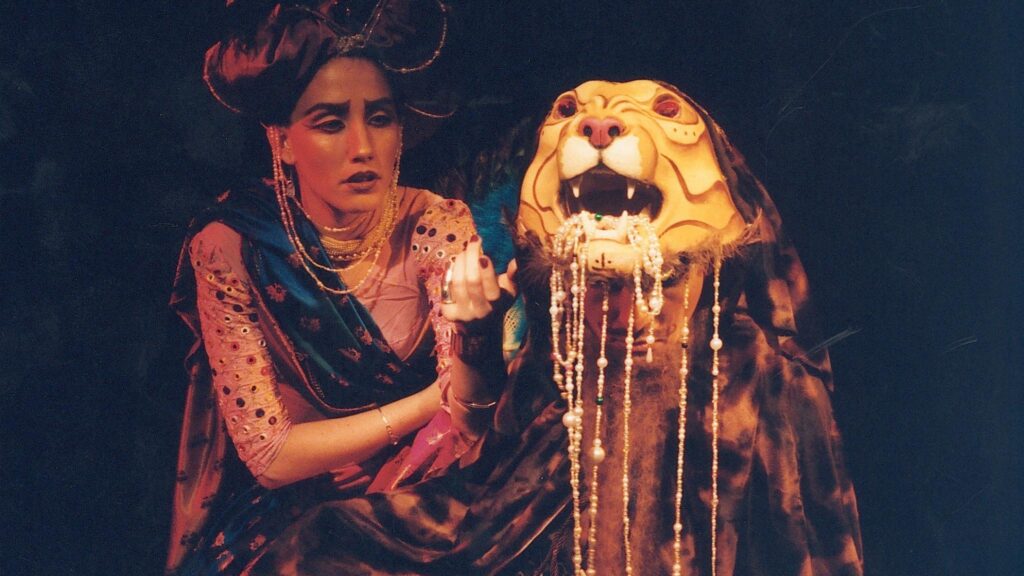
Busójáráskor
Busójáráskor is an ethnographic documentary on the celebration of Busójárás, a six-day festival in the southern town of Mohács, Hungary held each February to mark the end of Carnival season and the death of winter. Busójárás is a tradition of the Šokci people, a South Slavic ethnic group spanning parts of Croatia, Serbia and Hungary who self-identify as Croats. The celebration’s mythology looks back to the 16th and 17th centuries, when the region was under Ottoman rule. The legend states that the Šokci left the town to avoid Turkish troops, living instead in the swamps and forest. One night, an old man suddenly appeared, telling them to carve scary masks and weapons, and that a knight would arrive to tell them when it was time to storm the troops. Wearing animal pelts and carved wooden masks, armed with pikes and spears, and carrying noise-makers, the Šokci stormed the Turks who ran away in fear.

The Ring of King Koda
Moustapha Alassane—a pioneering African filmmaker born in Benin and living in Niger for most of his life—came to cinema with an already-developed flair for storytelling. According to writer Nwachukwu Frank Ukadike, “His extreme talent for drawing and his quest for invention prompted him, before he even knew what cinema was, to organize a one-man exhibition in which he projected his color drawings for his audience by using transparent cellophane wrappers from cigarette packets.”
With the support of the Institut Français

Impressions from Rustaveli
Impressions from Rustaveli is inspired by the 12th century Georgian poet Shota Rustaveli, whose epic poem The Knight in Panther’s Skin is considered a masterpiece of Georgia’s national literature. The poem is dedicated to King Tamara, the first female ruler of the Kingdom of Georgia at the height of its power in the Middle Ages, and is a chivalric romance which nonetheless emphatically affirms equality between women and men.

